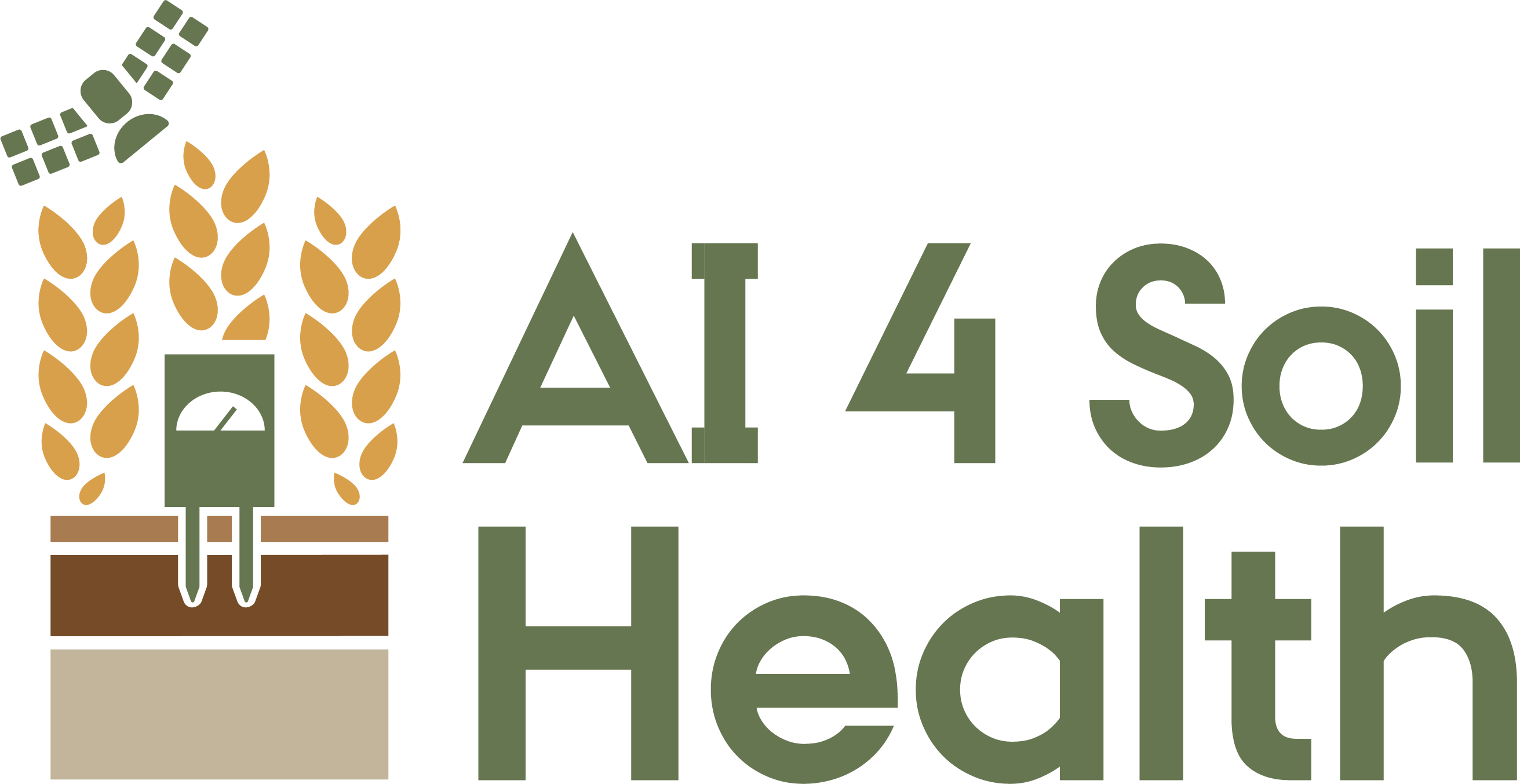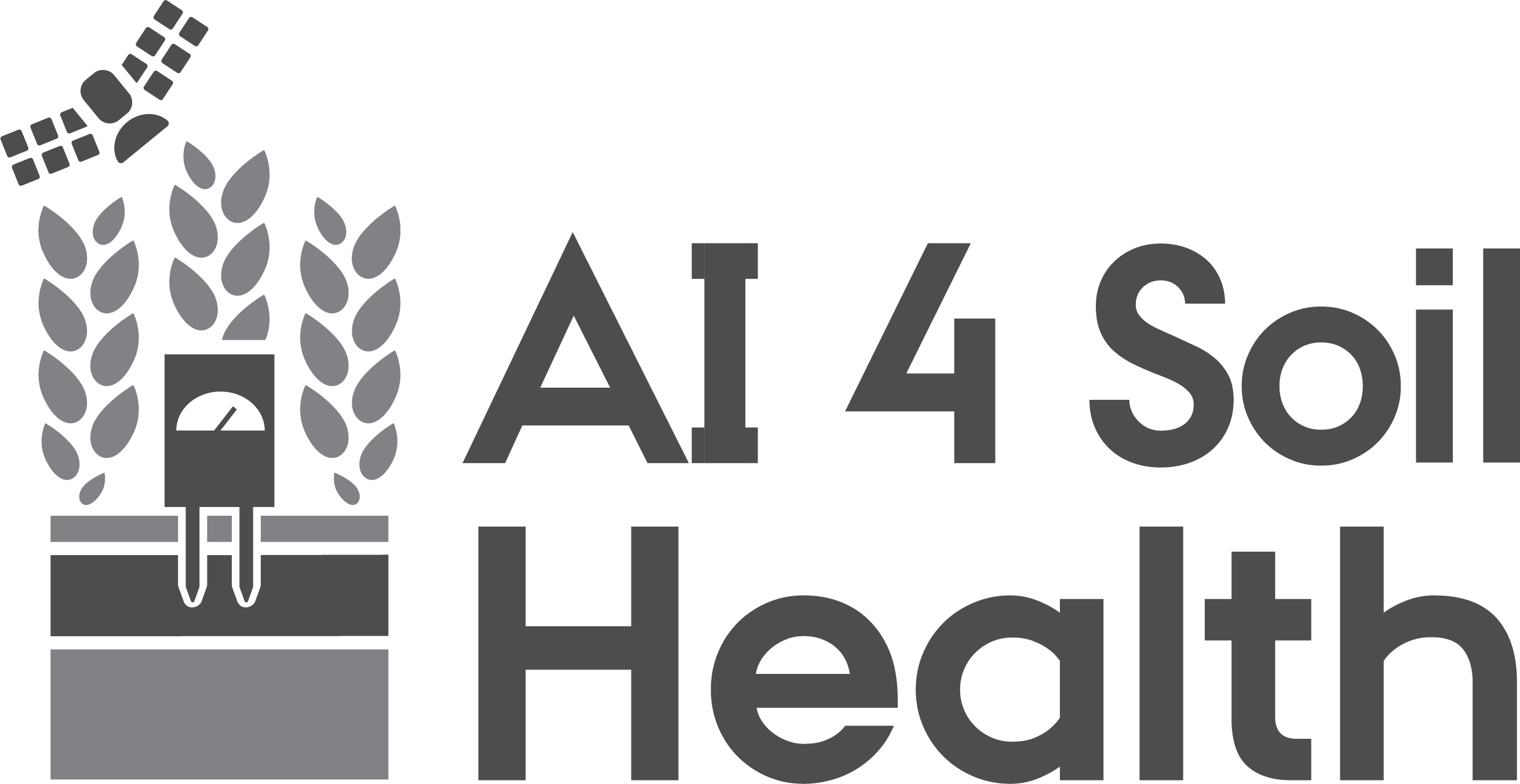Partners

Aarhus University, department of Agroecology
The Department of Agroecology carry out basic, strategic and applied research in issues regarding the interaction between climate, soil, plants, animals and people in agro-ecosystems with a focus on promoting health, sustainability and environmentally friendly production of food, feed, energy and bio-based products. We contribute to sustainable production and growth through research, consulting and teaching.
How they are involved in AI4SoilHealth:
AU, department of agroecology is the coordinator of the project. In addition to this, they will participate in the development of the soil health index, choosing, testing and validating soil indicators that later can be incorporated into the AI4SoilHealth app. They are also contributing to the project with a pilot site at national scale in Denmark where they will test new in-situ data gathering methods and tools.

Soil Association
For over 75 years the Soil Association has forged connections between people and nature, to transform the way we eat, farm, and care for our natural world, from the ground up. In the UK, the Soil Association works with farmers, land managers, policy makers and businesses to secure standards and policy decisions, advise, train and facilitate knowledge exchange, and enable change.
How they are involved in AI4SoilHealth:
With a wide range of experience in HE and H2020 projects, as well as co-ordinating over 135 field labs within the UK as part of the Innovative Farmers network, Soil Association joins this project on two levels: 1 – to co-ordinate the pilot sites providing soil data and testing across 11 countries for AI4SoilHealth, lending expertise to knowledge exchange and best practice with running field labs and 2 – to lead the communication, dissemination and exploitation of the AI4SoilHealth project to meet the objectives of sharing the project impact and results nationally, Europe-wide and Internationally.
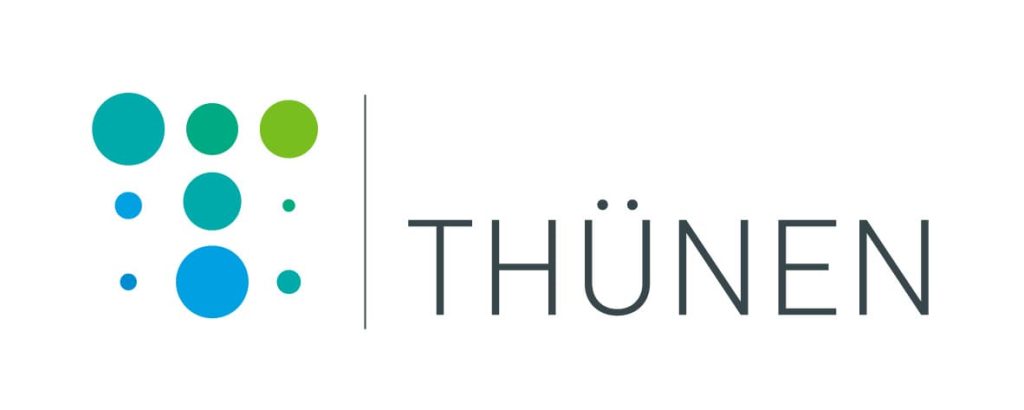
Johann Heinrich von Thünen Institute
The Thünen Institute consists of 15 specialized institutes with socioeconomic, ecological and technological expertise. The German Johann Heinrich von Thünen Institute, Federal Research Institute for Rural Areas, Forestry and Fisheries is one of these and conducts research and policy advice related to rural areas, agriculture, forests and fisheries.
How they are involved in AI4SoilHealth:
As part of AI 4 Soil Health the Federal Research Institute for Rural Areas, Forestry and Fisheries will check, analyse, and interpret the predicted trends in European soil health at various spatial scales and help to make these results accessible to the public.
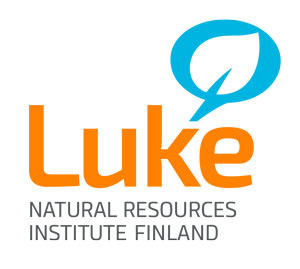
Natural Resources Institute Finland (Luke)
The Natural Resources Institute Finland (Luke) is a research organisation operating under the Ministry of Agriculture and Forestry of Finland. Luke’s task is to promote competitive business based on the sustainable use of renewable natural resources, as well as wellbeing and the vitality of the countryside.
How they are involved in AI4SoilHealth:
Luke is leading Finnish pilot site which will be providing a platform for testing remote sensing (earth observation) technologies for evaluating soil health indicators.
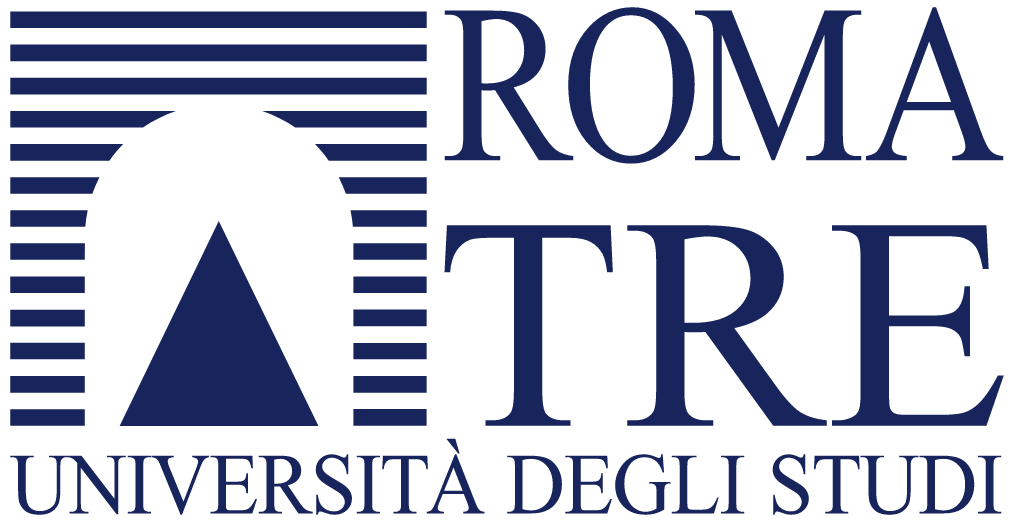
Roma Tre University
Roma Tre University is an Italian public research university located in Rome, Italy, with its main campus in the Ostiense district. The university was founded in 1992 and is the youngest university in Rome with a student population of around 40,000. Their motto is sàpere aude, which means ‘Dare to know’.
How they are involved in AI4SoilHealth:
Roma Tre University’s overall aim in the AI4SoilHealth project is to address human-environment interactions at multiple spatial scales seeking to unravel soil erosion and soil degradation dynamics in Europe.
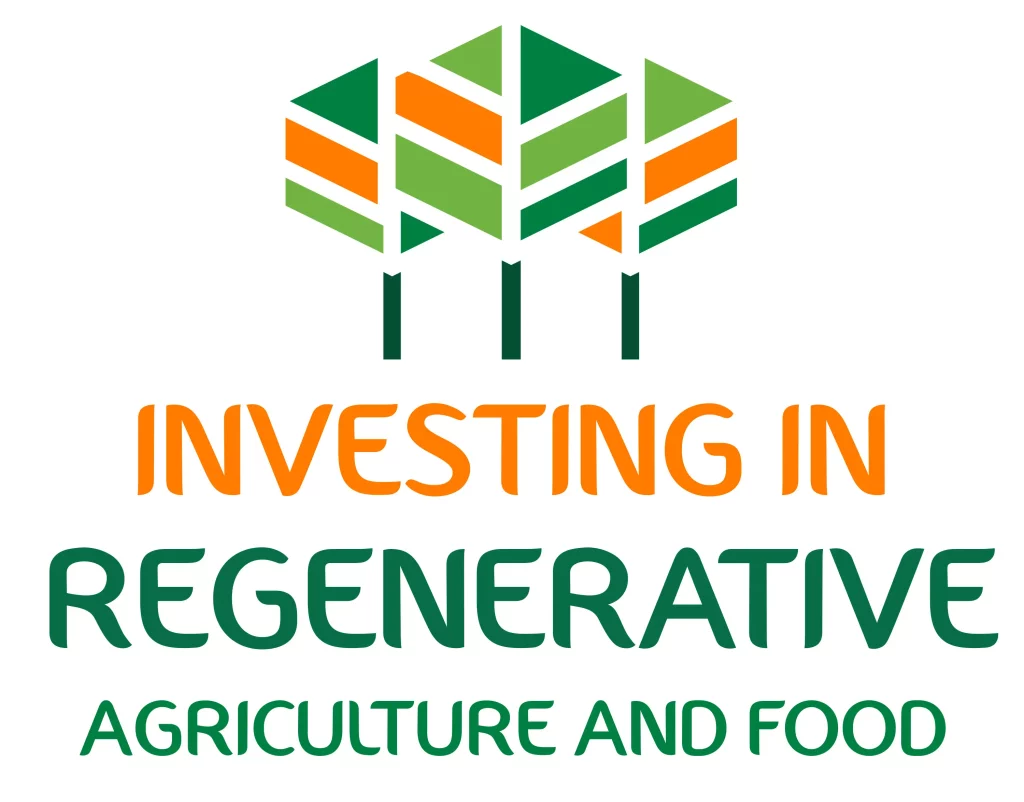
RegenEarth BV (former Sustinn)
The Investing in Regenerative Agriculture and Food podcast show talks to the pioneers in the regenerative food and agriculture space. The aim is to learn more on how to put our money to work to regenerate soil, people, local communities and ecosystems while making an appropriate and fair return.
How they are involved in AI4SoilHealth:
RegenEarth BV will be producing a special podcast series about AI4SoilHealth, interviewing researchers and people about the outcome of the project. A specific podcast channel will be set up.
We will be involved in shaping the communication, dissemination and exploration strategy, creating the training materials and organising the awareness raising campaigns.

University of Basel, Environmental Geoscience department
Research Group Alewell at the University of Basel develop and apply isotopic (component specific as well as bulk), radiogenic and biomarker tracers as indicators of wetland status (natural, drained or restored) as well as to assess soil erosion of upland soils. For upscaling, we apply modelling and remote mapping with automated machine learning and geostatistics including the evaluation of nutrient budgets and export (especially phosphorus loss from soil ecosystems in the light of the imminent threat of peak phosphorus). More recently, we have added soil hydraulic properties in our assessments of soil health status.
How they are involved in AI4SoilHealth:
Researchers at University of Basel will be finger printing wetlands with isotopes and biomarkers to assess wetland status (natural, drained, restored). This data will then be used for ground truthing of remote mapping. They will also contribute to soil health modelling and mapping.

University of Aberdeen
Established to serve the north-east of Scotland, today University of Aberdeen is a global presence in higher education. Teaching at the University of Aberdeen is organised across 12 schools which encompass a broad range of disciplines. Multidisciplinary research centres and institutes bring together experts at the cutting-edge of their fields to work with colleagues across the UK and beyond.
How they are involved in AI4SoilHealth:
Researchers at University of Aberdeen will be contributing to establish soil health indicators and providing advice for new alternative soil health indicators and proxies.
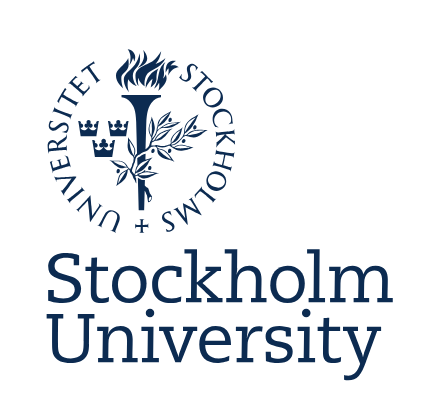
Stockholm University
Founded 1878 Stockholm University (SU), is one of the world’s top 100 higher education institutes. SU has a particularly strong profile in natural sciences, further strengthened by the Bolin Centre for Climate Research, a national centre of scientific excellence.
How they are involved in AI4SoilHealth:
Stockholm University is the hub for ground measurements within the AI 4 Soil Health project and also responsible for building a system for quickly evaluating soil health from combinations of different measurements. To implement this SU will also assist in building the AI 4 Soil Health mobile app.
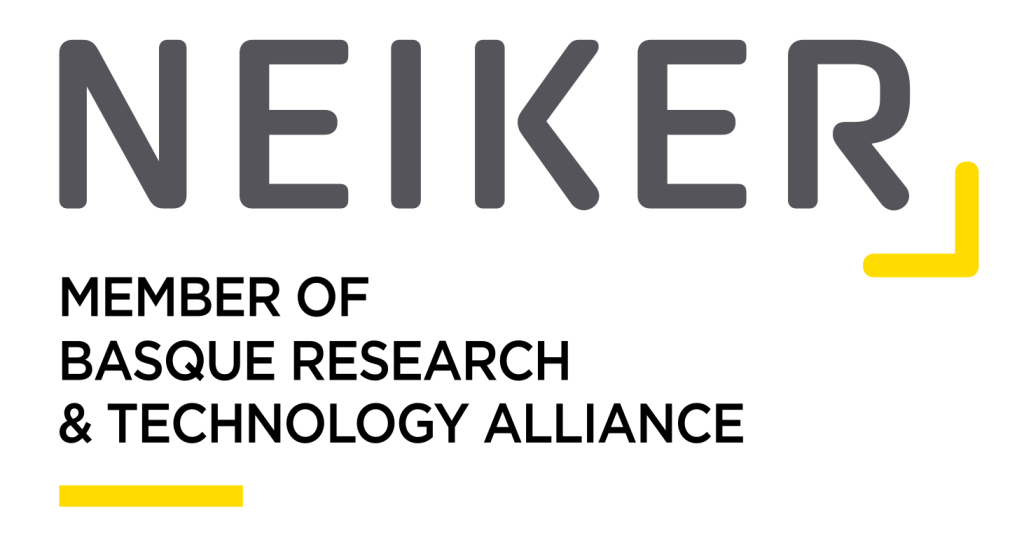
NEIKER - Basque Institute for Agricultural Research and Development
NEIKER create valuable solutions based on scientific knowledge, to support the sustainable development of the agri-food and forestry sector, in order to contribute to the well-being of society with committed people.
How they are involved in AI4SoilHealth:
We will contribute to AI4SoilHealth with our expertise on the utilization of biological properties as monitoring tools for the assessment of soil health. The tools developed in the project will be tested in the case studies of the Basque Country.
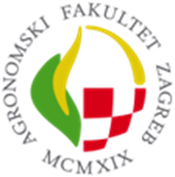
University of Zagreb Faculty of Agriculture (UniZgFAZ)
The faculty of Agriculture is dedicated to the education of highly qualified experts, development, and broadening of professional knowledge in the field of agriculture and related sciences. Applying the highest academic standards, we enable students to acquire competencies based on the newest scientific knowledge, for the benefit of society.
How they are involved in AI4SoilHealth:
UniZgFAZ will be involved in the development of soil spectroscopy tools for estimating soil health metrics. They will also be establishing and coordinating a multi-actor engagement pilot in the Neretva River delta, Croatia with users who want to overcome the constraints of soil salinity.
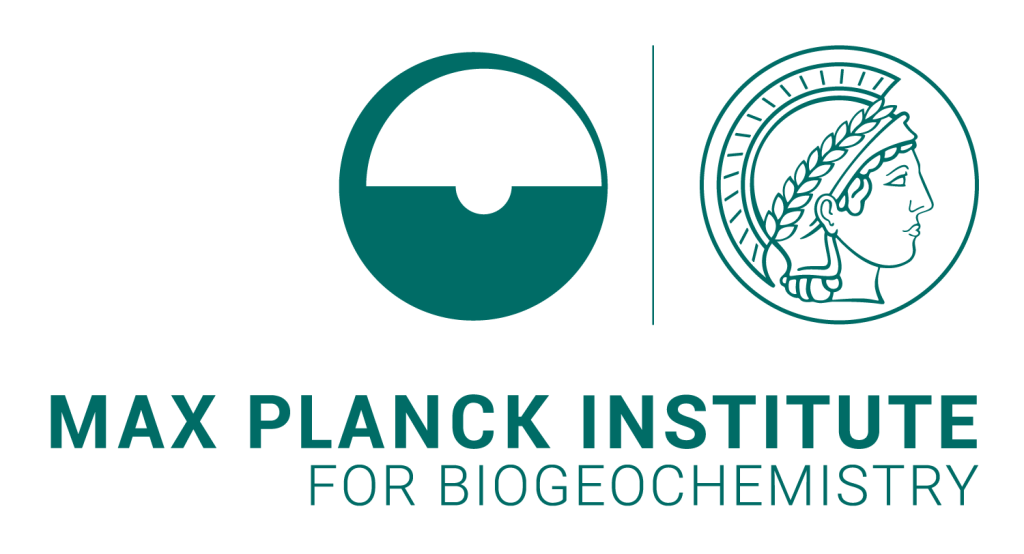
Max Planck Institute for Biogeochemistry
Researchers at the Max Planck Institute for Biogeochemistry study global biogeochemical cycles describing the interactions between plants, soils, and the atmosphere. They aim to understand better how living organisms – including humans – exchange carbon, nutrients and water with their environment and how this affects ecosystems at regional to global scales.
How they are involved in AI4SoilHealth:
Max Planck Institute for Biogeochemistry will bring process-based modelling and machine learning together to understand the capacity of soils to store soil organic carbon.

Digit Soil
Digit Soil is a team of experts in soil science, biotechnology, agronomy, and engineering that aims to revolutionize agriculture and regenerate soils. With our user-friendly soil extracellular enzymatic activity assessment platform coupled with agronomic models, we provide farmers with accurate, personalized, and directly interpretable information on soil quality.
How they are involved in AI4SoilHealth:
Digit Soil is involved in developing novel soil health indicators and improving soil health prediction models with the on-farm measurement with in-situ biological activity sensors.

International Institute for Applied Systems Analysis
The International Institute for Applied Systems Analysis (IIASA) is an international scientific institute that conducts research into the critical issues of global environmental, economic, technological, and social change that we face in the twenty-first century. Our findings provide valuable options to policymakers to shape the future of our changing world. IIASA is independent and funded by prestigious research funding agencies in Africa, the Americas, Asia, and Europe. www.iiasa.ac.at
How they are involved in AI4SoilHealth:
The main role of IIASA will be to provide fine-scale EU-wide maps of soil health indicators and soil functions in in 30 or 80 years from now. Unlike mapping historical or recent soil properties, predicting future state of European soils includes assumptions on future climate and land management. Existing regional gridded crop modelling platform EPIC-IIASA will provide large-scale estimates of soil health indicators and soil functions under climate change and future land management interventions and serve an input for AI-based down-scaling algorithms
with high spatial resolution soil, topography, and climate covariates.
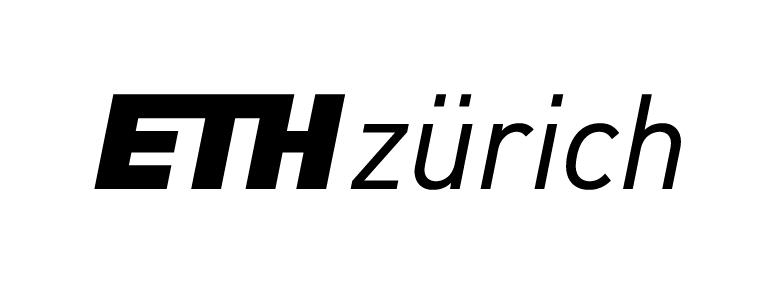
ETH Zurich - Physics of Soils and Terrestrial Ecosystems
Our group, PoSE, studies soil-plant-water relations at all scales ranging from pore geometrical considerations to global evapotranspiration patterns.
How they are involved in AI4SoilHealth:
ETH Zurich’s task will be to propose and test new indicators for physical soil health that integrate soil structural effects on soil hydraulic properties.

UK Centre for Ecology and Hydrology
UKCEH is an independent, not-for-profit research institute, carrying out excellent environmental science across water, land and air. Our science makes a difference underpinning environmental policies, commercial innovation and conservation action all around the world.
How they are involved in AI4SoilHealth:
UKCEH is responsible for the collection and analysis of British soil monitoring data and the development of state of the art biological measures. These will include macrofauna and microbes.
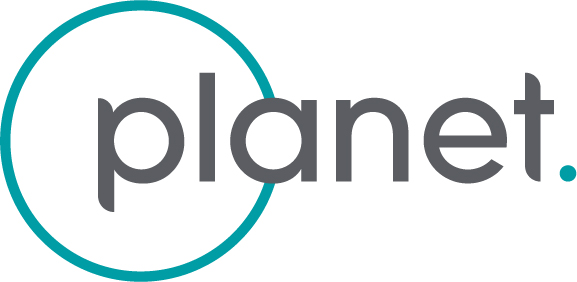
Planet Labs (covers Planet Labs Germany GmbH and its affiliated entity Vandersat B.V.)
Planet Labs is a vertically integrated aerospace and data analytics company that operates the world’s largest fleet of Earth-imaging satellites. It was founded in 2010 and is driven by a mission to image the entire Earth every day, and make global change visible, accessible, and actionable.
How they are involved in AI4SoilHealth:
Planet Labs will use satellite imagery and planetary variables to develop and test soil health indicators for selected areas in Europe. The focus is to exploit the use of these commercial higher spatial resolution data and derived products in addition to the public datasets which are used for the pan-European mapping.

MultiOne
As a small team with extensive experience, MultiOne provides clients with flawless service in geospatial data engineering and data science, ecological modelling, application of mathematical and numerical methods in data analytics, software development and database architecture. Alone and in collaboration with other companies and experts from academia and the private sector, the company develops custom solutions for environmental and other spatial problems through the expert use of cutting-edge technology.
How they are involved in AI4SoilHealth:
MultiOne will provide technical expertise in the geospatial field to facilitate production of robust data infrastructure and other software solutions needed to accomplish the goals of the project. Additionally, they will assist with preparing the necessary Earth observation products and other tasks along the machine learning pipeline of the project.
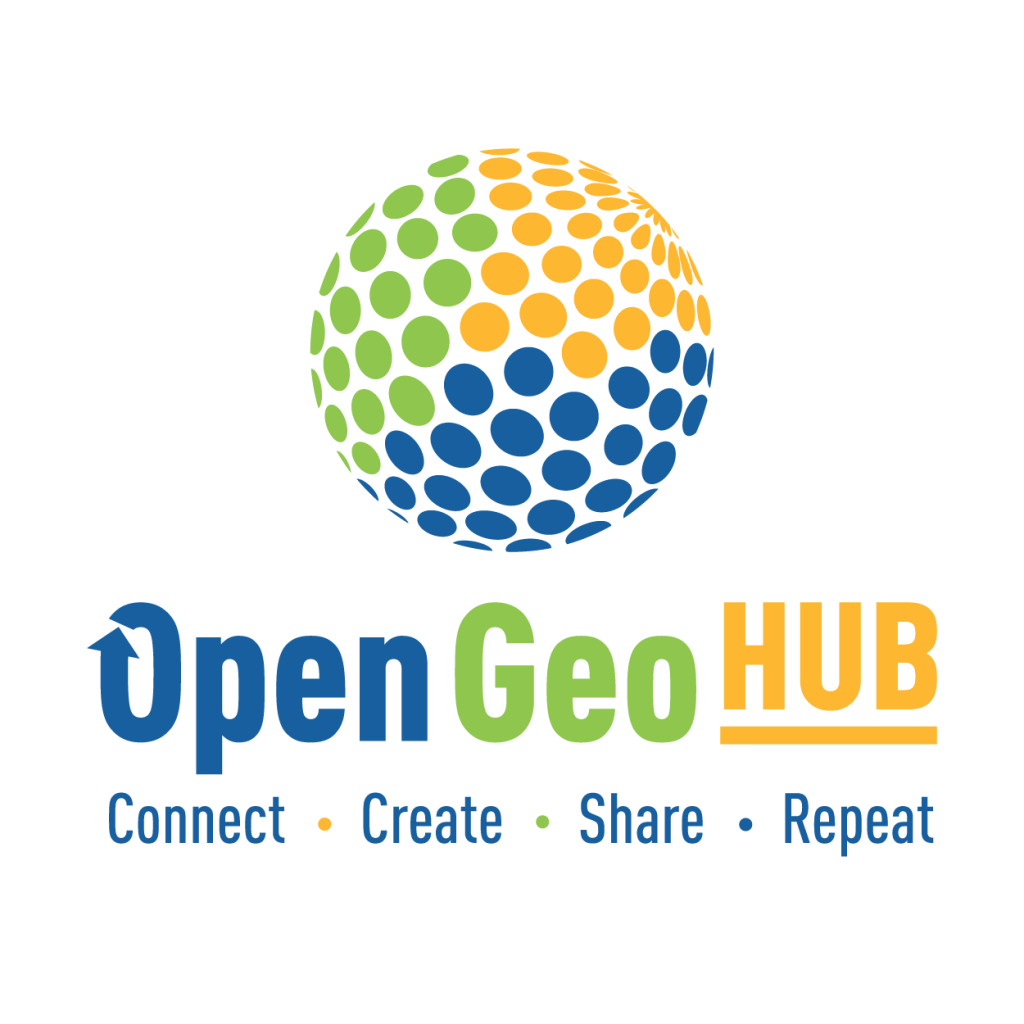
OpenGeoHub Foundation
OpenGeoHub Foundation is an independent deep tech group promoting Open Source and Open Data solutions. Our expertise lies in combining remote sensing with ground data for monitoring essential biodiversity variables at scale. We provide solutions & training in cutting-edge open geospatial data & services. We strive for a greener and fairer planet — together we go far!
How they are involved in AI4SoilHealth:
OGH leads 18+ research and business partners in the production of harmonized EU-wide soil monitoring tools and services using the latest cutting-edge development in AI, remote/proximal sensing, and soil process modelling. Their work for the project includes the creation of cyberinfrastructures that will provide up-to-date and reliable information at the level of individual farms, assisting users in making better decisions.

ISINNOVA
ISINNOVA is an independent multidisciplinary research institute delivering strategic and innovative solutions to complex challenges. ISINNOVA supports communities, policymakers and industry in shaping research-based and collaborative paths to inspire well-informed transitions towards sustainable futures. Our international think-tank team includes experienced researchers, skilled project managers, innovation experts and communication strategists.
How they are involved in AI4SoilHealth:
ISINNOVA will contribute to identifying the most relevant current and future policy questions for which soil data is needed. They will do this by identifying the soil data parameters needed by different types of policy activities. Working together with relevant partners and stakeholders, they will also scan and assess innovative policies and economic incentives to promote soil health.

The Centre for Agricultural Research (ATK)
Research in soil science and related disciplines for agricultural efficiency and environmental conservation.
How they are involved in AI4SoilHealth:
The Centre for Agricultural Research (ATK) will be contributing to soil health standard harmonisation and soil health indices in addition to organising an international conference.
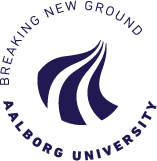
Aalborg University (AAU), Department of the Built Environment, Soil Technology Research Group
Aalborg University work with characterization, constitutive function development and modelling of parameters and processes in soil-based porous media. Their research ranges far from porous media systems to urban and cultivated soils, groundwater aquifers, and crop- and soil-based building materials.
How they are involved in AI4SoilHealth:
Aalborg University will be developing knowledge and relations to predict soil air phase functions across soil types and habitat (land use) from basic EU database (Lucas) properties. It will then apply these across scales from national to Pan-European to map soil health parameters related to the air phase (mapping the “Lungs of Soil”).

Hamburg University of Technology (TUHH)
The founding principles of the TUHH are unique in Germany: research priority, interdisciplinarity, innovation, regionality as well as internationality are obligatory foundations for our actions. The guiding principle of research, teaching and technology transfer is to develop technology for humanity.
How they are involved in AI4SoilHealth:
Using a comprehensive set of soil and climate related data, the Institute of Geo-Hydroinformatics at TUHH will develop AI-powered solutions which extend the quantitative capabilities required for prediction of the present and future state of soil health across Europe.
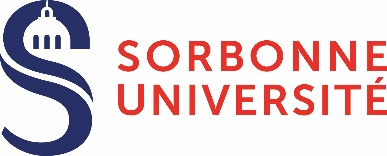
Sorbonne University
Sorbonne University is a multidisciplinary, research-intensive, world-class university. Located in the heart of Paris, with a regional presence, it is committed to the success of its students and to meeting the scientific challenges of the 21st century. Thanks to its 55,300 students, 6,400 academic researchers and partner researchers, and 3,600 administrative and technical staff who make it a daily reality, Sorbonne University promotes diversity, creativity, innovation and openness to the world.
How they are involved in AI4SoilHealth:
Sorbonne University will be managing the Global Soil Macrofauna database, this records animals that are 1.5mm or longer, such as ants, earthworms and spiders. This database contains data of soil macrofauna abundance in Europe, which were acquired with a standardized protocol. We will also test the development of a new non-destructive sampling approach for soil macrofauna, based on computer vision and artificial intelligence.
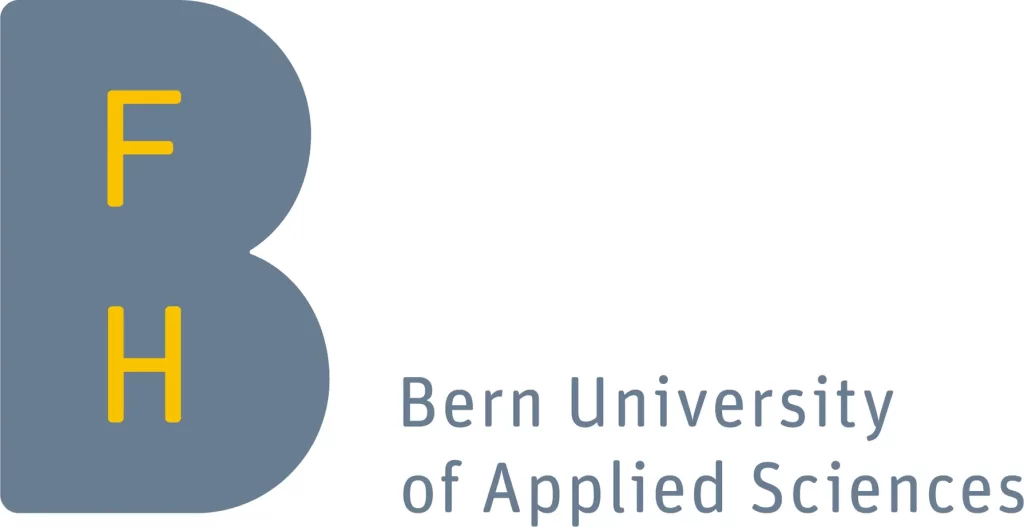
Bern University of Applied Sciences (BFH), School of Agricultural, Forest and Food Sciences (HAFL)
The School of Agricultural, Forest and Food Sciences HAFL is a school of Bern University of Applied Sciences. It continuously adapts its teaching, research, consulting and continuing education offerings in the fields of agricultural, forest and food sciences to the new developments in the economy and society.
How they are involved in AI4SoilHealth:
We aim to assess new soil health characteristics and proxies for indicators. Several soil structure attributes are viable candidates. As direct and indirect observation methods exist, it remains unclear how well structural attributes can be approximated. Besides, we will investigate error propagation of correlated basic attributes into aggregated indicator sets.

Research Unit BioEcoAgro at INRAE, National Research Institute for Agriculture, Food and Environment
INRAE is France’s National Research Institute for Agriculture, Food and Environment, consisting of 237 research units spread across the French territory. It aims to align the economic, social and environmental performance of agriculture. It runs several long-term observation and experimentation systems, among which the ACBB (Agroecosystems, Biogeochemical Cycles and Biodiversity) on arable cropping systems at Estrées-Mons.
How they are involved in AI4SoilHealth:
The INRAE Joint Cross-Border Research Unit BioEcoAgro will assess susceptibility of European agricultural land to the rhizosphere priming effect, using observational data products and meta-analysis (PrimeSCale model). Additionally, BioEcoAgro contributes to the AI4SoilHealth project by providing access to legacy data and infrastructure at the long-term research site ACBB Estrées-Mons in Northern France
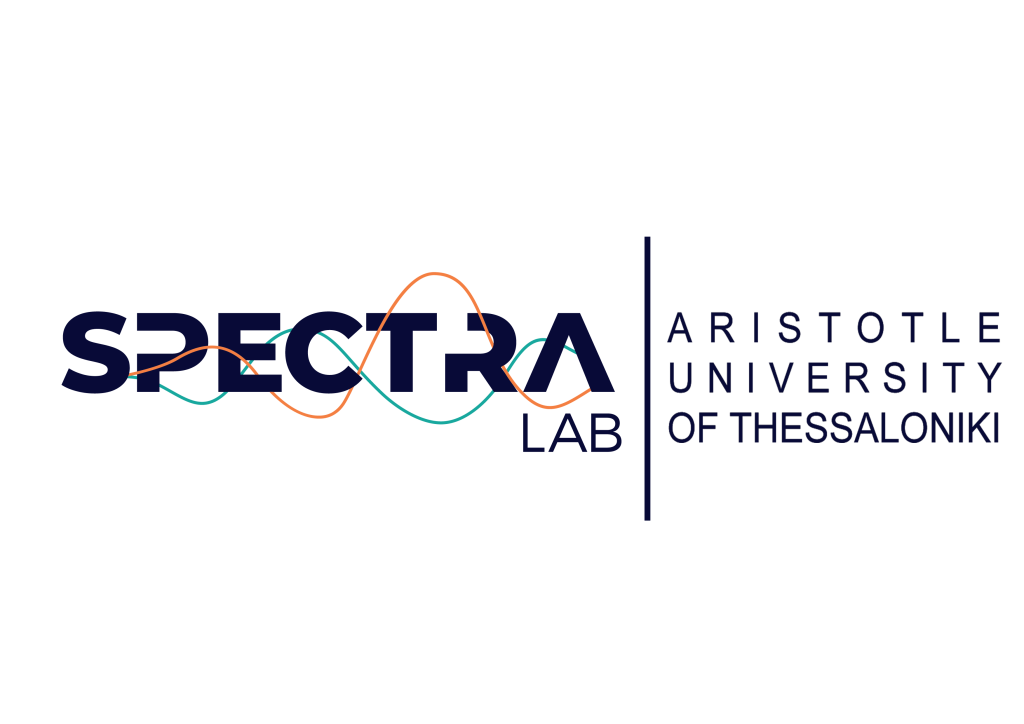
Aristotle University of Thessaloniki, Laboratory of Remote Sensing, Spectroscopy and GIS
Our research focuses on the fields of Environmental Computational Science, Explainable Artificial Intelligence, Spectroscopy and Integrated Sensing Systems. We are keen on designing and developing methodologies of sustainable natural resource management for environmental monitoring by harnessing the power of computational intelligence and by handling big data derived from cutting-edge sensing technologies.
How they are involved in AI4SoilHealth:
As a member of the AI4SoilHealth consortium, AUTh will predominantly contribute to the progress of soil spectroscopy activities by developing user-friendly tools that can evaluate soil health indicators in both field and laboratory environments. Through the Greek pilot, AUTh aims to bring farmers closer to state-of-the-art soil spectroscopy technologies, offering them a comprehensive understanding of the potential benefits and demonstrating how AI4SoilHealth can assist in optimizing their agricultural practices.
